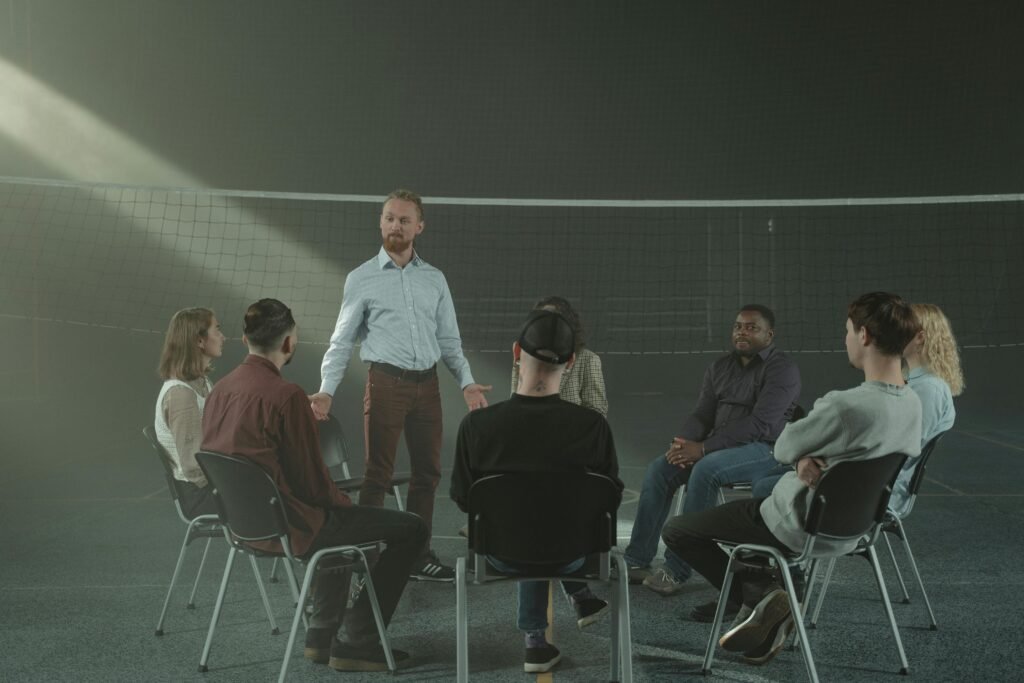The Power of Togetherness: Mental Health and Community

In recent years, the world has witnessed a significant rise in mental health challenges. According to the World Health Organization, approximately 1 in 4 people will experience a mental health issue at some point in their lives. This alarming statistic highlights the urgency of addressing these challenges globally.
Community support plays a crucial role in mental health recovery. When individuals have access to a supportive network, they are more likely to seek help and engage in positive coping strategies. Communities foster resilience, providing safe spaces for discussions and resources that can lead to healing.
Understanding Mental Health Challenges
Today, many individuals grapple with prevalent mental health issues such as anxiety, depression, and stress-related disorders. These conditions have become increasingly common, often exacerbated by the pressures of modern life.
Recent global events, including the COVID-19 pandemic and rising socio-political tensions, have intensified these challenges. According to a study by the American Psychological Association, more than 70% of adults reported significant stress levels related to the pandemic, leading to a surge in mental health concerns.
“The mental health impact of crises can be profound, affecting individuals and communities alike,” says Dr. Sarah Thompson, a clinical psychologist. “Understanding these challenges is essential for effective support and recovery.”
As we navigate these turbulent times, recognizing the interplay between global events and mental health is crucial. This awareness can drive communities to unite and provide the necessary support for those struggling.
https://b00b9epxw94who0ao9hmv9ezac.hop.clickbank.net
The Power of Community Support
Community support plays a vital role in enhancing mental health. When individuals come together, they create a network of understanding and empathy. This collective strength helps reduce feelings of isolation and provides a safe space for sharing experiences.
One notable example is the Buddy Program, which connects individuals facing mental health challenges with trained volunteers. Participants report feeling more supported and less alone. Another initiative, Community Wellness Workshops, fosters learning and sharing of coping strategies. These workshops have successfully empowered many to manage their mental health more effectively.
| Community Initiative | Focus Area | Outcome |
|---|---|---|
| Buddy Program | Peer support | Reduced feelings of isolation |
| Community Wellness Workshops | Coping strategies | Enhanced self-management |
| Neighborhood Support Groups | Group therapy | Improved emotional resilience |
Such initiatives highlight the power of community involvement in addressing mental health challenges, proving that together, we can foster healing and growth.
Effective Community Strategies
Community strategies are essential in addressing mental health challenges effectively. Among the most impactful are peer support groups and community-led mental health programs. These initiatives foster connection and understanding, which are crucial for mental well-being.
Peer support groups provide individuals with a platform to share experiences and coping strategies. They are often led by trained facilitators who understand the unique struggles of mental health. This shared experience can significantly reduce feelings of isolation and offer practical advice.
Community-led mental health programs also play a critical role in enhancing access to resources. They often include:
Workshops on mental health awareness
Access to trained mental health professionals
Safe spaces for discussion and support
Activities that promote overall well-being
These programs not only empower individuals but also strengthen community bonds. By coming together, communities can create a supportive environment that encourages healing and resilience.
https://8daaagy3lz21kl5bsi7zfawqbv.hop.clickbank.net
Barriers to Community Involvement

Despite the critical role of community in supporting mental health, several barriers hinder effective involvement. One of the most significant challenges is the pervasive stigma surrounding mental health issues. Many individuals still feel ashamed or embarrassed to seek help, fearing judgment from others. According to recent studies, nearly 1 in 5 people reported experiencing stigma related to their mental health.
As one mental health advocate noted,
“Stigma is a silent barrier that prevents people from reaching out and connecting with their community.”
This stigma not only affects those struggling with mental health challenges but also discourages potential community supporters from getting involved.
Another major barrier is the lack of resources and funding for community initiatives. Many organizations struggle to secure the necessary funds to implement programs that can effectively support mental health. Without adequate resources, the potential for community involvement is severely limited, leaving many individuals without the help they need.
Overcoming Barriers Together
To create a supportive environment for mental health, communities must focus on education and awareness programs. These initiatives play a critical role in reducing stigma. By educating individuals about mental health issues, misconceptions can be challenged, and empathy can be fostered. Workshops, seminars, and public campaigns can help demystify mental health, making it easier for people to seek help without fear of judgment.
Additionally, policy advocacy and support are essential in paving the way for systemic change. Community members can advocate for policies that allocate funding for mental health services and support community-led initiatives. This can lead to the establishment of more accessible resources, such as counseling services and support groups.
By working together, communities can dismantle the barriers that inhibit involvement and create a culture of understanding and support. The combination of education and policy advocacy empowers individuals, encouraging them to play an active role in promoting mental health awareness and resources in their communities.
https://db014jx5t69rex8hdim4vdssc1.hop.clickbank.net
FAQs on Community and Mental Health
Understanding the role of community in mental health is crucial. Here are some frequently asked questions on this topic:
Q: How can community support help individuals with mental health challenges?
A: Community support provides emotional connections, reduces feelings of isolation, and offers practical resources, making it easier for individuals to cope with their challenges.
Q: What types of community initiatives are effective in promoting mental health?
A: Initiatives such as peer support groups, awareness campaigns, and community workshops can effectively raise awareness and foster a culture of support.
Q: Are mental health issues a sign of weakness?
A: No, mental health issues are medical conditions that can affect anyone, regardless of strength or resilience. Seeking help is a sign of strength.
Q: How can I get involved in my community’s mental health initiatives?
A: You can volunteer, attend local events, or join advocacy groups focused on mental health to help raise awareness and support others.
By addressing these questions, we can enhance understanding and encourage active participation in community mental health efforts.
https://blissfullway.com/7-proven-methods-to-alleviate-work-related-stress/
https://www.cdc.gov/
Conclusion: A Collective Effort
Throughout this article, we have explored the vital role of community in addressing mental health challenges. From fostering support networks to implementing effective programs, community involvement is crucial in creating a more inclusive environment for those struggling with mental health issues.
Now more than ever, it is essential for individuals to engage with their communities. Whether through volunteering, participating in local initiatives, or simply reaching out to someone in need, every action counts.
Let us come together to build a supportive network that promotes mental well-being. Your involvement can make a difference—take the first step today.







